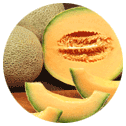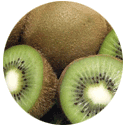Papaya Health Benefits And Nutrition Values
Papaya fruit has papain in it and it comes in different colors and sizes. 40 types of papayas are cultivated and it is known world wide. They are pear shaped fruits with 20 inches long and its weight is about 1.1 to 2.3 pounds. The inner cavity of the fruit contains black round seeds which look like a gelatinous substance. The well known varieties in papayas are Kamiah, Mexican Red, Mexican Yellow, Solo, Sunrise, Sunset, Vista Solo and Waimanalo. The fruit contain papain which digests proteins.

Nutrient |
Amounts/Selected Serving |
DV% |
|---|---|---|
Calcium |
33.6mg |
3% |
Iron |
0.1mg |
1% |
Magnesium |
14.0mg |
3% |
Phosphorus |
7.0mg |
1% |
Potassium |
360mg |
10% |
Sodium |
4.2mg |
~ |
Zinc |
0.1mg |
1% |
Copper |
0.0mg |
1% |
Manganese |
0.0mg |
1% |
Selenium |
0.8mcg |
1% |
Fluoride |
~ |
~ |
Nutrients |
Amounts/Selected Serving |
DV% |
|---|---|---|
Calories |
54.6(229 kJ) |
3% |
Carbohydrate |
50.1(210 kJ) |
~ |
Fat |
1.6(6.7 kJ) |
~ |
Protein |
2.9(12.1 kJ) |
~ |
Alcohol |
0.0(0.0 kJ) |
~ |
Nutrients |
Amounts/Selected Serving |
DV% |
|---|---|---|
Cholesterol |
0.0mg |
0% |
Phytosterols |
~ |
~ |
Nutrients |
Amounts/Selected Serving |
DV% |
|---|---|---|
Total Fat |
0.2g |
0% |
Saturated Fat |
0.1g |
0% |
Monounsaturated Fat |
0.1g |
~ |
Polyunsaturated Fat |
0.0g |
~ |
Total trans fatty acids |
~ |
~ |
Total trans-monoenoic fatty acids |
~ |
~ |
Total trans-polyenoic fatty acids |
~ |
~ |
Total Omega-3 fatty acids |
35.0mg |
~ |
Total Omega-6 fatty acids |
8.4mg |
~ |
Nutrient |
Amounts/Selected Serving |
DV% |
|---|---|---|
Vitamin A |
1531IU |
31% |
Vitamin C |
86.5mg |
144% |
Vitamin D |
~ |
~ |
Vitamin E(AlphaTocopherol) |
1.0mg |
5% |
Vitamin K |
3.6mcg |
5% |
Thiamin |
~ |
3% |
Riboflavin |
~ |
3% |
Niacin |
0.5mg |
2% |
Vitamin B6 |
60.0mg |
1% |
Folate |
53.2mcg |
13% |
Vitamin B12 |
120.0mcg |
~ |
Pantothenic Acid |
0.3mg |
3% |
Choline |
8.5mg |
~ |
Betaine |
~ |
~ |
Nutrients |
Amounts/Selected Serving |
DV% |
|---|---|---|
Total Carbohydrate |
13.7g |
5% |
Dietary Fiber |
2.5g |
10% |
Starch |
~ |
~ |
Sugars |
8.3g |
~ |
Nutrients |
Amounts/Selected Serving |
DV% |
|---|---|---|
Protein |
0.9g |
2% |
Nutrients |
Amounts/Selected Serving |
DV% |
|---|---|---|
Alcohol |
0.0g |
~ |
Water |
124g |
~ |
Ash |
0.9g |
~ |
Caffeine |
0.0mg |
~ |
Theobromine |
0.0mg |
~ |
- Protection Against Heart Disease
- Colon Cancer
- Anti-Inflammatory Effects
- Immune Support
- Rheumatoid Arthritis
- Promote Lung Health
- Prevent Prostate Cancer
- Digestive Process
- Relieve Nausea
- Lung Protection
- Cure Dengue Fever
- Skin Treatment
Papayas are very helpful for the prevention of atherosclerosis and diabetic heart disease. Papayas are an excellent source of vitamin C as well as a good source of vitamin E and vitamin A.These nutrients help prevent the oxidation of cholesterol. Only when cholesterol becomes oxidized, it able to stick to and build up in blood vessel walls, forming dangerous plaques that can cause heart attacks or strokes. One way in which dietary vitamin E and vitamin C may exert this effect is through their association with a compound called paraoxonase, an enzyme that inhibits LDL cholesterol and HDL cholesterol oxidation.
Papayas are good source of fiber, to lower high cholesterol levels. The folic acid found in papayas is needed for the conversion of a substance called homocysteine into amino acids such as cysteine or methionine. If unconverted, homocysteine can directly damage blood vessel walls, is considered a significant risk factor for a heart attack or stroke.
The nutrients in papaya has been helpful in the prevention of colon cancer. Its fiber is able to bind cancer-causing toxins in the colon and keep them away from the healthy colon cells. These nutrients provide synergistic protection for colon cells from free radical damage to their DNA. Increasing your intake of these papaya is good idea for individuals at risk of colon cancer.
Papaya contains several unique protein enzymes including papain and chymopapain. These enzymes help lower inflammation and to improve healing from burns. In addition, the antioxidant nutrients found in papaya, including vitamin C, vitamin E, and beta-carotene, are also good at reducing inflammation. This may explain why people with diseases that are worsened by inflammation, such as asthma, osteoarthritis, and rheumatoid arthritis, find that the severity of their condition is reduced when they get more of these nutrients.
Vitamin C and vitamin A, present in papaya made in the body from the beta-carotene are needed for the proper function of a healthy immune system. Papaya may therefore be a healthy for preventing such illnesses as recurrent ear infections, colds and flu.
High doses of vitamin C makes osteoarthritis, a type of degenerative arthritis that occurs with aging, another indicates that vitamin C-rich foods, such as papaya, provide humans with protection against inflammatory polyarthritis, a form of rheumatoid arthritis involving two or more joints.
If you are smoker, or if you are frequently exposed to secondhand smoke, then making vitamin A rich foods, such as papaya, your healthy way of eating save your life .vitamin A's protective effects may help explain why some smokers do not develop emphysema. "There are a lot of people who live to be 90 years old and are smokers" Why? Probably because of their diet. The implications are those who start smoking at an early age are more likely to become vitamin A deficient and develop complications associated with cancer and emphysema. If someone you love smokes, or if your work necessitates exposure to second hand smoke, protect yourself by making sure that at least one of the World's Healthiest Foods that are rich in vitamin A, such as papaya, is a daily part of your healthy way of eating.
Eating regularly lycopene-rich fruits, such as papaya, may greatly reduce a man's risk of developing prostate cancer.In this case-control involving 130 prostate cancer patients and 274 hospital controls, men taking papaya were found to have an 86% reduced risk of prostate cancer.
It was found between the men's consumption of lycopene-rich fruits and vegetables such as tomatoes, apricots, pink grapefruit, watermelon, papaya, and guava. Men who most frequently enjoyed these foods were 82% less likely to have prostate cancer compared to those consuming the least lycopene-rich foods.
Regular consumption of foods which is rich in lycopene resulted in a synergistic protective effect, stronger than the protection afforded by either.
If you have digestive problems, you must consume eating papayas. because they contain an enzyme called papain, which helps with the digestive process. It can prevent you from constipated and may also help end diarrhea. papain has also been used as a way to treat stings from bees and jellyfish. If there is nothing besides papaya available in the house, it may provide you with relief.
If you often have nausea, it is because you have morning sickness or you get sick when you are traveling, you may want to consider adding papaya to your diet. Papaya is known to prevent this type of nausea or provide you with relief once you already have it.
The papaya provides the body with lung protection is because it contains Vitamin A. When a person experiences lung cancer or other lung conditions, they often have a deficiency of Vitamin A. If you are worried about getting lung cancer due to secondhand smoke or working conditions, then you really may want to consider adding papaya to your daily diet.There are many people who believe that papaya will also help protect the heart from disease and the body from developing various forms of cancer.
The juice from papaya leaves can cure dengue fever.
Wash the leaf and cut into smaller pieces.
squeeze the pulp and filter with the cloth.
Two tablespoons serving per day.
It has a very bitter taste.hence it may provide some relief to dengue fever.
The papain is very useful for the treatment of various skin irritations and wounds. It has also been used for the treatment of bedsores, burns, wounds from surgical procedures and skin ulcers. Papain lotions are used on wounds in the healing process and not on open sores. When applied to the skin, be careful as not to let the ointment come in direct contact with open wounds.
PERSON WHOM MAY NOT CONSUME PAPAYA:
- Nephrotic Syndrome
Nephrotic Syndrome patients cannot eat orange. It is cold in nature. The aged with deficiency-cold of stomach, intestines, kidney, and lung function, should not eat too much, so as to avoid occurring symptoms of stomachache, aching and limp waist and knee. It will be easy to get inflamed, causing tongue festered, hot and pyogenic eyes, and piles. Orange contains erythrophyll, overeating will cause yellow pigment deposition.















